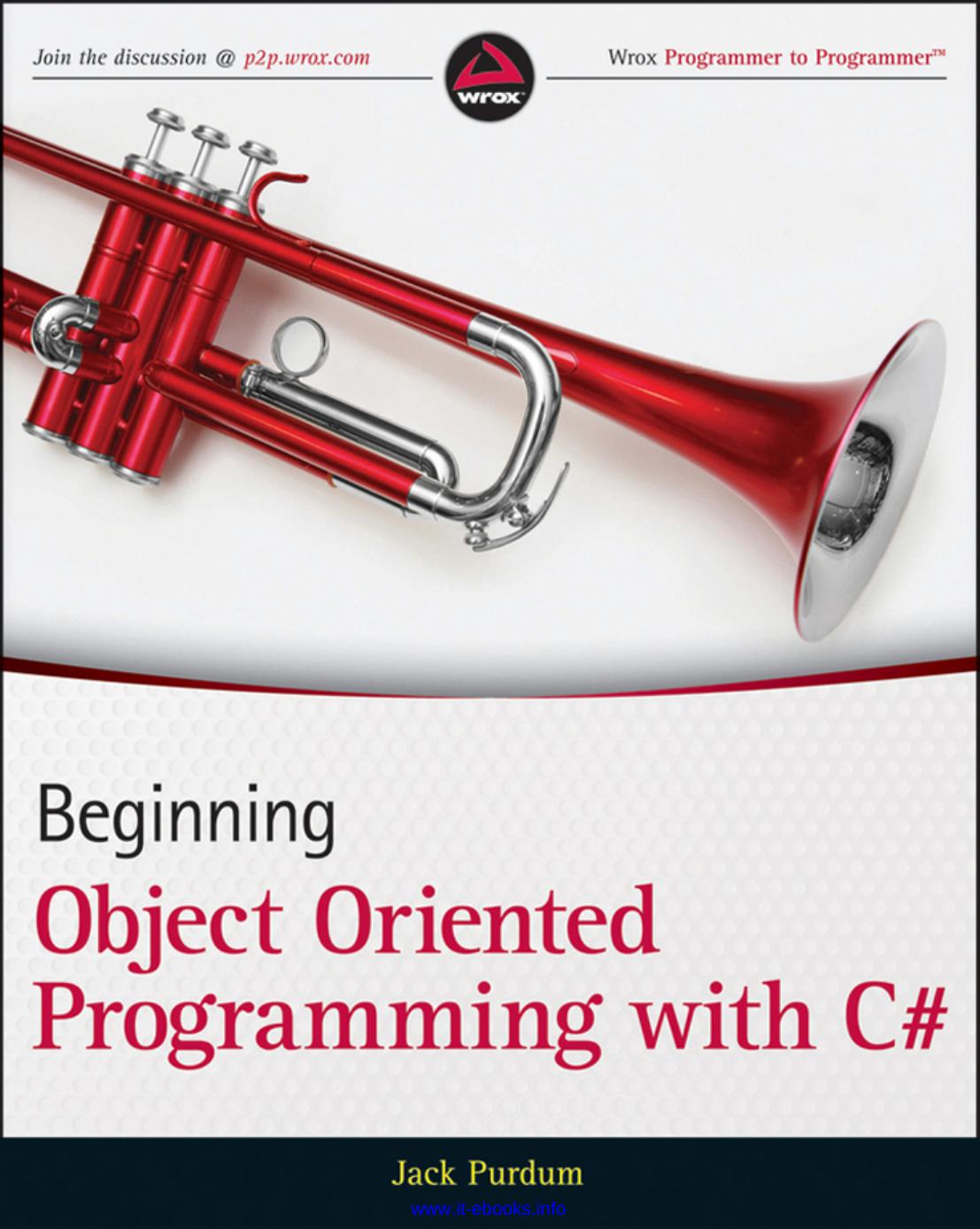Beginning Object-Oriented Programming with C# by Jack Purdum

Author:Jack Purdum
Language: eng
Format: epub, pdf
Publisher: John Wiley & Sons
Published: 2012-10-26T16:00:00+00:00
Always Call the Default Constructor
You might be asking yourself: “Why bother calling the default constructor? If you never use the content of current, who cares?” Well, given the way clsDates is written presently, current isn't used, so it really doesn't matter. However, that does not mean you won't add code later on that does assume a default state for current.
More important, calling the default constructor gets you into the coding habit of establishing a “base state” for the object. Not starting all objects with the same base state may cause problems later. For example, you might be writing some form of a database class in which the default constructor creates a connection to the database. If an overloaded constructor didn't also establish that database connection, perhaps other methods in the class could not perform their functions properly.
If you do write a constructor that has parameters, you can no longer call the default constructor that has no parameters. The only way you can call a parameterless constructor once you have created a contructor with parameters is to explicitly write your own parameterless constructor. That is, the “no-code” default constructor no longer exists and you must supply your own.
Just as you've seen so many times before, the Initialization Step of the Five Program Steps creates the base environment in which the program code is to perform. Calling a constructor is similar to the Initialization Step for a program but viewed in the more narrowly defined context of a method. That is, the constructor establishes the environment in which a specific object is to exist and perform. Therefore, it is always a good idea for all overloaded constructors to call the default constructor so that the base state of the object can be safely assumed.
Download
Beginning Object-Oriented Programming with C# by Jack Purdum.pdf
This site does not store any files on its server. We only index and link to content provided by other sites. Please contact the content providers to delete copyright contents if any and email us, we'll remove relevant links or contents immediately.
| Coding Theory | Localization |
| Logic | Object-Oriented Design |
| Performance Optimization | Quality Control |
| Reengineering | Robohelp |
| Software Development | Software Reuse |
| Structured Design | Testing |
| Tools | UML |
The Mikado Method by Ola Ellnestam Daniel Brolund(23567)
Hello! Python by Anthony Briggs(22703)
Secrets of the JavaScript Ninja by John Resig Bear Bibeault(21523)
Kotlin in Action by Dmitry Jemerov(20566)
Dependency Injection in .NET by Mark Seemann(20489)
The Well-Grounded Java Developer by Benjamin J. Evans Martijn Verburg(20383)
OCA Java SE 8 Programmer I Certification Guide by Mala Gupta(19535)
Algorithms of the Intelligent Web by Haralambos Marmanis;Dmitry Babenko(18333)
Grails in Action by Glen Smith Peter Ledbrook(17458)
Adobe Camera Raw For Digital Photographers Only by Rob Sheppard(16976)
Test-Driven iOS Development with Swift 4 by Dominik Hauser(11240)
Becoming a Dynamics 365 Finance and Supply Chain Solution Architect by Brent Dawson(8071)
Microservices with Go by Alexander Shuiskov(7841)
Practical Design Patterns for Java Developers by Miroslav Wengner(7739)
Test Automation Engineering Handbook by Manikandan Sambamurthy(7704)
Angular Projects - Third Edition by Aristeidis Bampakos(7182)
The Art of Crafting User Stories by The Art of Crafting User Stories(6642)
NetSuite for Consultants - Second Edition by Peter Ries(6561)
Demystifying Cryptography with OpenSSL 3.0 by Alexei Khlebnikov(6326)
